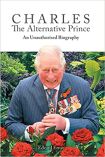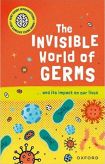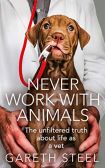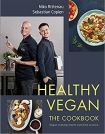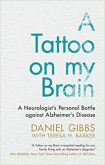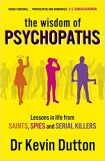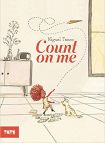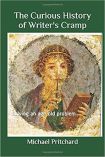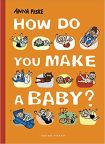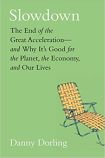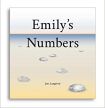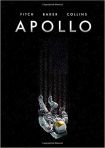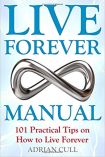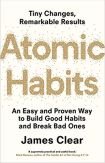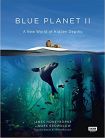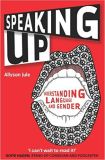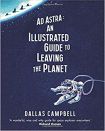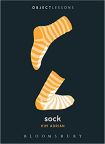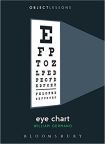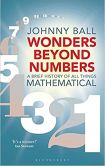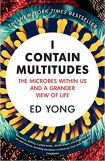Difference between revisions of "Newest Popular Science Reviews"
| (155 intermediate revisions by 2 users not shown) | |||
| Line 1: | Line 1: | ||
[[Category:Popular Science|*]] | [[Category:Popular Science|*]] | ||
| − | [[Category:New Reviews|Popular Science]] | + | [[Category:New Reviews|Popular Science]]__NOTOC__ <!-- Remove --> |
| − | + | {{Frontpage | |
| − | __NOTOC__ | + | |isbn=1788360702 |
| − | {{ | + | |title=Charles, The Alternative Prince: An Unauthorised Biography |
| − | | | + | |author=Edzard Ernst |
| − | |title= | + | |rating=4 |
| − | |rating= | + | |genre=Biography |
| − | |genre= | + | |summary=For over forty years, Prince Charles has been an ardent supporter of alternative medicine and complementary therapies. ''Charles, The Alternative Prince'' critically assesses the Prince's opinions, beliefs and aims against the background of the scientific evidence. There are few instances of his beliefs being vindicated and his relentless promotion of treatments which have no scientific support has done considerable damage to the reputation of a man who is proud of his refusal to apply evidence-based, logical reasoning to his ambitions. |
| − | |summary= | + | }} |
| − | + | {{Frontpage | |
| + | |isbn=0192779230 | ||
| + | |title=Very Short Introductions for Curious Young Minds: The Invisible World of Germs | ||
| + | |author=Isabel Thomas | ||
| + | |rating=5 | ||
| + | |genre=Children's Non-Fiction | ||
| + | |summary='Germs' seems to have become a catch-all word to cover anything unpleasant which has the potential to make you ill. In the first book in what looks to be a very promising new series, OUP and Isabel Thomas have provided a clear and accessible introduction to the world of germs. We get an informed look at how people originally thought about diseases and what they thought caused them and how the thinking has developed over time. The vocabulary can be confusing but Thomas gives a regular box headed 'speak like a scientist' which explains some of the trickiest concepts and you'll soon be familiar with bacteria, fungi, protists and viruses – and how we should protect ourselves. | ||
| + | }} | ||
| + | {{Frontpage | ||
| + | |isbn=gareth_steel | ||
| + | |title=Never Work With Animals | ||
| + | |author=Gareth Steel | ||
| + | |rating=4 | ||
| + | |genre=Animals and Wildlife | ||
| + | |summary=I don't often begin my reviews with a warning but with ''Never Work With Animals'' it seems to be appropriate. Stories of a vet's life have proved popular since ''All Creatures Great and Small'' but ''Never Work With Animals'' is definitely not the companion volume you've been looking for. As a TV show the author would argue that ''All Creatures'' lacked realism, as do other similar programmes. Gareth Steel says that the book is not suitable for younger readers and - after reading - I agree with him. He says that he's written it to inform and provoke thought, particularly amongst aspiring vets. It deals with some uncomfortable and distressing issues but it doesn't lack sensitivity, although there are occasions when you would be best choosing between reading and eating. | ||
}} | }} | ||
| − | + | {{Frontpage | |
| − | {{ | + | |isbn=0241480442 |
| − | | | + | |title=Healthy Vegan The Cookbook: Vegan Cooking Meets Nutrition Science |
| − | |title= | + | |author=Niko Rittenau and Sebastian Copien |
|rating=4.5 | |rating=4.5 | ||
| − | |genre= | + | |genre=Cookery |
| − | |summary= | + | |summary=Emotionally, I am a vegan. Mentally, I am a vegan. I read [[How to Love Animals in a Human-Shaped World by Henry Mance]] and was appalled by the way in which we treat animals in our search for (preferably cheap) food. Practically, I am not a vegan. It worked for a while apart from the odd blip with regard to cheese but then a perfect storm of those events which you hope don't occur too often in your lifetime tempted me back to animal-based protein. It wasn't the taste - I know that I can get plant-based food that tastes just as good as anything plundered from the animal kingdom - it was the ease of being able to get sufficient protein when meals were often snatched in a few spare moments. |
| − | |||
| − | |||
| − | |||
| − | |||
| − | |||
}} | }} | ||
| − | + | {{Frontpage | |
| − | {{ | + | |author=Daniel Gibbs with Teresa H Barker |
| − | |author= | + | |title=A Tattoo on my Brain |
| − | + | |rating=3.5 | |
| − | |||
| − | |||
| − | |||
| − | |||
| − | |||
| − | |||
| − | |||
| − | |||
| − | |title= | ||
| − | |rating=5 | ||
|genre=Autobiography | |genre=Autobiography | ||
| − | |summary= | + | |summary=Alzheimer's is a disease that slowly wears away your identity and sense of self. I have been directly affected by this cruel disease, as have many. Your memories and personality worn away like a statue over time affected the elements. It seems as if nature wants that final victory over you and your dignity. This is what makes Daniel Gibbs' memoir so admirable. Daniel Gibbs is a neurologist who was diagnosed with Alzheimers and has documented his journey in ''A Tattoo on my Brain''. |
| − | + | |isbn=1108838936 | |
| − | |||
| − | | | ||
}} | }} | ||
| + | {{Frontpage | ||
| + | |isbn=0099551063 | ||
| + | |title=The Wisdom of Psychopaths: Lessons in life from Saints, Spies and Serial Killers | ||
| + | |author=Dr Kevin Dutton | ||
| + | |rating=4 | ||
| + | |genre=Popular Science | ||
| + | |summary='' 'Donald Trump outscores Hitler on psychopathic traits' claims Oxford University researcher.'' | ||
| − | + | Until the events of 6 January 2021 that might have surprised, even shocked many readers: now they're probably convinced that they knew it all along. The statement has lost a little of its shock value but it does help us to understand more about the nature of psychopathy. It's too easy to associate psychopathy with the Yorkshire Ripper, Jeffrey Dahmer, Saddam Hussein or Robert Maudsley, the real-life Hannibal Lecter, but the truth is that having psychopathic traits can sometimes be a good thing. | |
| − | |||
| − | |||
| − | |||
| − | |||
| − | |||
| − | |||
}} | }} | ||
| − | + | {{Frontpage | |
| − | {{ | + | |isbn=1849767343 |
| − | | | + | |title=Count on Me |
| − | |title= | + | |author=Miguel Tanco |
|rating=4.5 | |rating=4.5 | ||
| − | |genre= | + | |genre=Children's Non-Fiction |
| − | |summary= | + | |summary=The title and format of this book might lead you to think that it's either about responsibility - or it's a basic 1-2-3 book for those just starting out on the numbers journey. It isn't: it's a hymn of praise to maths. It's about why maths is so wonderful and how you meet it in everyday life. |
| − | |||
}} | }} | ||
| − | + | {{Frontpage | |
| − | {{ | + | |isbn=B08B39QNRH |
| − | | | + | |title=The Curious History of Writer's Cramp: Solving an age-old problem |
| − | |title= | + | |author=Michael Pritchard |
|rating=4 | |rating=4 | ||
|genre=Popular Science | |genre=Popular Science | ||
| − | |summary= | + | |summary=''Society is based on speech but civilisation requires the written word''. |
| − | + | ||
| + | I came to Michael Pritchard's ''The Curious History of Writer's Cramp'' by a rather strange route. I have problems with my hands which orthopaedic surgeons refer to as 'interesting': I prefer the word 'painful' but I have an interest in the way that hands work. An exploration of the history of a problem which has defeated some of the best medical minds for some three-hundred-years seemed liked excellent background reading and so it proved, with the book being as much about the doctors treating the sufferers and the changing medical attitudes as the problem itself. | ||
}} | }} | ||
| − | + | {{Frontpage | |
| − | {{ | + | |isbn=1776572858 |
| − | | | + | |title=How Do You Make a Baby? |
| − | |title= | + | |author=Anna Fiske and Don Bartlett (translator) |
|rating=5 | |rating=5 | ||
| − | |genre= | + | |genre=Home and Family |
| − | |summary=' | + | |summary=It's more than sixty years since I asked how babies were made. My mother was deeply embarrassed and told me that she'd get me a book about it. A couple of days later I was handed a pamphlet (which delivered nothing more than the basics, in clinical language which had never been used in our house before) and I was told that it wouldn't be discussed any further as it ''wasn't something which nice people talked about''. I ''knew'' more, but was little ''wiser''. Thankfully, times have changed. |
| − | |||
}} | }} | ||
| − | + | {{Frontpage | |
| − | {{ | + | |author=Danny Dorling |
| − | |author= | + | |title=Slowdown |
| − | |title= | ||
|rating=4 | |rating=4 | ||
| − | |||
| − | |||
| − | |||
| − | |||
| − | |||
| − | |||
| − | |||
| − | |||
| − | |||
|genre=Politics and Society | |genre=Politics and Society | ||
| − | |summary= | + | |summary= We are living in a time of rapid change, and we're worried about it. Dorling tells us that the latter is normal, natural and probably good for us. We are designed to worry and with the current state of what we're doing in the world we have much to be worried about. However, over the next three-hundred-and-some pages, if you can follow the arguments, it sets out in scientific detail why either we shouldn't be as worried as we are, or in some cases that we're worrying about the wrong things. Mostly. Because mostly, things are not changing as rapidly as we think they are. In fact, the rate of change in many things is slowing down and the direction of change will in some cases go into reverse. |
| − | | | + | |isbn=0300243405 |
}} | }} | ||
| − | + | {{Frontpage | |
| − | {{ | + | |isbn=Langford_Emily |
| − | | | + | |title=Emily's Numbers |
| − | | | + | |author=Joss Langford |
| − | |rating= | + | |rating=4 |
| − | |genre= | + | |genre=Children's Non-Fiction |
| − | |summary= | + | |summary=Emily found words ''useful'', but counting was what she loved best. Obviously, you can count anything and there's no limit to how far you can go, but then Emily moved a step further and began counting in twos. She knew all about odd and even numbers. Then she began counting in threes: half of the list were even numbers, but the other half was odd and it was this list of odd numbers which occurred when you counted in threes which she called ''threeven''. (Actually, this confused me a little bit at first as they're a subset of the odd numbers but sound as though they ought to be a subset of the even numbers, but it all worked out well when I really thought about it.) |
| − | |||
}} | }} | ||
| − | + | {{Frontpage | |
| − | {{ | + | |isbn=1910593508 |
| − | | | + | |title=Apollo |
| − | |title= | + | |author=Matt Fitch, Chris Baker and Mike Collins |
|rating=5 | |rating=5 | ||
| − | |genre= | + | |genre=History |
| − | |summary= | + | |summary=This incredible graphic novel is a love letter to the Moon landings and the passion for the subject drips off every Apollo by Matt Fitch, Chris Baker and Mike Collins. This is a story we know well and because of this, the authors take a few narrative shortcuts knowing that we can fill in the blanks. These shortcuts are the only downside to the book. If you've ever read a comic book adaptation of a film you will be familiar with the slight feeling that there are scenes missing and that dialogue has been trimmed. This is a graphic novel that could easily have been three times as long and still felt too short. |
| − | + | }} | |
| + | {{Frontpage | ||
| + | |isbn=1999308719 | ||
| + | |title=Live Forever Manual: Science, ethics and companies behind the new anti-aging treatments | ||
| + | |author=Adrian Cull | ||
| + | |rating=4.5 | ||
| + | |genre=Lifestyle | ||
| + | |summary=For many years now I've (half) joked that I intended to live forever and that so far, it was working out OK. Time has passed though and although I'm a great deal fitter and healthier than most people of my age there were a few nagging health problems which were tipping my life out of balance. It was time to look for a new approach and as so often happens, the reviewing gods brought me the book I needed. ''Live Forever Manual: Science, ethics and companies behind the new anti-ageing treatments'' seemed like the answer to my problems - only you get so much more than just 101 tips. | ||
}} | }} | ||
| − | + | {{Frontpage | |
| − | {{ | + | |isbn=1847941834 |
| − | | | + | |title=Atomic Habits |
| − | |title= | + | |author=James Clear |
| − | |rating=5 | + | |rating=4.5 |
| − | |genre= | + | |genre=Lifestyle |
| − | |summary= | + | |summary=I've said this before but there are some books that you seek out, some books that you stumble across and some books that drop into your life because you really MUST read them, like, right now! ''Atomic Habits'' is in the last category. |
| − | |||
}} | }} | ||
| − | + | {{Frontpage | |
| − | {{ | + | |isbn=Honeyborne BlueII |
| − | | | + | |title=Blue Planet II |
| − | |title= | + | |author=James Honeyborne and Mark Brownlow |
|rating=4.5 | |rating=4.5 | ||
| + | |genre=Animals and Wildlife | ||
| + | |summary=You may well remember when the sticking of a number '2' after a film title was suggesting something of prestige - that the first film had been so good it was fully justified to have something more. That has hardly been proven correct, but it has until recently almost been confined to the cinema - you barely got a TV series worthy of a numbered sequel, and never in the world of non-fiction. If someone has made a nature series about, say, Alaska (and boy aren't there are a lot of those these days) and wants to make another, why she just makes another - nothing would justify the numeral. But some nature programmes do have the prestige, the energy and the heft to demand follow-ups. And after five years in the making, the BBC's Blue Planet series has delivered a second helping. | ||
| + | }} | ||
| + | {{Frontpage | ||
| + | |isbn=1783099593 | ||
| + | |title=Speaking Up | ||
| + | |author=Allyson Jule | ||
| + | |rating=4 | ||
|genre=Popular Science | |genre=Popular Science | ||
| − | |summary= | + | |summary='Speaking Up' has a fascinating subject matter - how language reflects and shapes our notions of gender. It looks at our use of language in media, education, religion, the workplace and personal relationships. Author Allyson Jule calls on an encyclopedic body of research from the mid-twentieth century to the present day. Reading it, we feel that she has studied everything that has ever been said on gendered linguistics; she references Foucault and the Kardashians with equal rigour. |
| − | |||
}} | }} | ||
| − | + | {{Frontpage | |
| − | {{ | + | |isbn=Campbell_Astra |
| − | | | + | |title=Ad Astra: An illustrated guide to leaving the planet |
| − | |title= | + | |author=Dallas Campbell |
| − | |rating= | + | |rating=5 |
|genre=Popular Science | |genre=Popular Science | ||
| − | |summary= | + | |summary=So… you want to leave the planet? Before you do you'd better study the whole history of human space flight to get up to speed. That could take a while… if only there was a handy guide that could condense it all down for you. Enter Dallas Campbell with this book: An illustrated guide to leaving the planet. |
| − | |||
}} | }} | ||
| − | + | {{Frontpage | |
| − | {{ | + | |isbn=Adrian_Sock |
| − | | | + | |title=Sock (Object Lessons) |
| − | |title= | + | |author=Kim Adrian |
|rating=3.5 | |rating=3.5 | ||
|genre=Popular Science | |genre=Popular Science | ||
| − | |summary= | + | |summary=The subject of this book has been around for several millennia, and yet my partner's daughter has been employed for several years designing it, or them. It's something I use for about 200 days of every year, at a guess (well, I have my self-diagnosed over-active eccrine glands and other people to think about) – which clearly puts me at the opposite end of the scale to well-known mass-murderer of women, Ted Bundy, who was into stealing credit cards to fund his desire of having a fresh pair every single day. On which subject, the amount of them we create every year could stack to the freaking moon and more. Some idiots buy more than six pairs a year, apparently, which is plain stupid. I'm talking, as you can tell, of the humble sock. |
| − | + | }} | |
| + | {{Frontpage | ||
| + | |isbn=Germano_Eye | ||
| + | |title=Eye Chart (Object Lessons) | ||
| + | |author=William Germano | ||
| + | |rating=4.5 | ||
| + | |genre=Popular Science | ||
| + | |summary=It's happened to me, and like as not it has or will happen to you, too. I mean the receipt of certain little numerical results, with a positive or negative before them to prove the correction needed to my vision to make me see with the intended clarity and normality. I've had that gizmo that photos the back of my eye to check for diabetes and other problems, I've had different tests to check the pressure inside my eye, and I've come away with glasses I don't need to wear all the time, but certainly benefit from on holiday, or when watching TV or a cinema or theatre production. And above and beyond that I've stared at – and got wrong – the simple, seemingly ageless test, of various letters in various configurations that diminish in size, to prove to the relevant scientist at what stage things get blurry for me. Of course, it's not ageless, but the scientific progress that led to it, the changes other people made to it, and the cultural impact it's had are all on these eye-opening small pages. | ||
}} | }} | ||
| − | + | {{Frontpage | |
| − | {{ | + | |isbn=Ball_Wonders |
| − | | | + | |title=Wonders Beyond Numbers: A Brief History of All Things Mathematical |
| − | |title= | + | |author=Johnny Ball |
|rating=5 | |rating=5 | ||
|genre=Popular Science | |genre=Popular Science | ||
| − | |summary= | + | |summary=Like many people of a ''certain age,'' I have fond memories of tuning in to watch Johnny Ball enthusiastically extolling the virtues of maths and science; succeeding where our schoolteachers had failed and actually making these subjects ''fun.'' Although decades have passed since those classic TV shows, his latest book proves that he has lost none of his passion and enthusiasm for his subject. |
| − | |||
| − | |||
| − | |||
| − | |||
| − | |||
}} | }} | ||
| − | + | {{Frontpage | |
| − | {{ | + | |isbn=Yong_Contain |
| − | | | + | |title=I Contain Multitudes: the microbes within us and a grander view of life |
| − | |title= | + | |author=Ed Yong |
| − | |rating= | + | |rating=5 |
|genre=Popular Science | |genre=Popular Science | ||
| − | |summary= | + | |summary=The world you know is a lie. There is no such thing as good or bad microbes. Sickness and health are all far more complex than we thought. Things designed to save us may kill us and things we think would kill us may save us. Welcome to the modern study of microbes. |
| − | |||
}} | }} | ||
| − | + | Move on to [[Newest Reference Reviews]] | |
| − | |||
| − | |||
| − | |||
| − | |||
| − | |||
| − | |||
| − | |||
Latest revision as of 16:38, 21 July 2022
Review ofCharles, The Alternative Prince: An Unauthorised Biography by Edzard ErnstFor over forty years, Prince Charles has been an ardent supporter of alternative medicine and complementary therapies. Charles, The Alternative Prince critically assesses the Prince's opinions, beliefs and aims against the background of the scientific evidence. There are few instances of his beliefs being vindicated and his relentless promotion of treatments which have no scientific support has done considerable damage to the reputation of a man who is proud of his refusal to apply evidence-based, logical reasoning to his ambitions. Full Review |
Review ofVery Short Introductions for Curious Young Minds: The Invisible World of Germs by Isabel Thomas'Germs' seems to have become a catch-all word to cover anything unpleasant which has the potential to make you ill. In the first book in what looks to be a very promising new series, OUP and Isabel Thomas have provided a clear and accessible introduction to the world of germs. We get an informed look at how people originally thought about diseases and what they thought caused them and how the thinking has developed over time. The vocabulary can be confusing but Thomas gives a regular box headed 'speak like a scientist' which explains some of the trickiest concepts and you'll soon be familiar with bacteria, fungi, protists and viruses – and how we should protect ourselves. Full Review |
Review ofNever Work With Animals by Gareth SteelI don't often begin my reviews with a warning but with Never Work With Animals it seems to be appropriate. Stories of a vet's life have proved popular since All Creatures Great and Small but Never Work With Animals is definitely not the companion volume you've been looking for. As a TV show the author would argue that All Creatures lacked realism, as do other similar programmes. Gareth Steel says that the book is not suitable for younger readers and - after reading - I agree with him. He says that he's written it to inform and provoke thought, particularly amongst aspiring vets. It deals with some uncomfortable and distressing issues but it doesn't lack sensitivity, although there are occasions when you would be best choosing between reading and eating. Full Review |
Review ofHealthy Vegan The Cookbook: Vegan Cooking Meets Nutrition Science by Niko Rittenau and Sebastian CopienEmotionally, I am a vegan. Mentally, I am a vegan. I read How to Love Animals in a Human-Shaped World by Henry Mance and was appalled by the way in which we treat animals in our search for (preferably cheap) food. Practically, I am not a vegan. It worked for a while apart from the odd blip with regard to cheese but then a perfect storm of those events which you hope don't occur too often in your lifetime tempted me back to animal-based protein. It wasn't the taste - I know that I can get plant-based food that tastes just as good as anything plundered from the animal kingdom - it was the ease of being able to get sufficient protein when meals were often snatched in a few spare moments. Full Review |
Review ofA Tattoo on my Brain by Daniel Gibbs with Teresa H BarkerAlzheimer's is a disease that slowly wears away your identity and sense of self. I have been directly affected by this cruel disease, as have many. Your memories and personality worn away like a statue over time affected the elements. It seems as if nature wants that final victory over you and your dignity. This is what makes Daniel Gibbs' memoir so admirable. Daniel Gibbs is a neurologist who was diagnosed with Alzheimers and has documented his journey in A Tattoo on my Brain. Full Review |
Review ofThe Wisdom of Psychopaths: Lessons in life from Saints, Spies and Serial Killers by Dr Kevin Dutton'Donald Trump outscores Hitler on psychopathic traits' claims Oxford University researcher. Until the events of 6 January 2021 that might have surprised, even shocked many readers: now they're probably convinced that they knew it all along. The statement has lost a little of its shock value but it does help us to understand more about the nature of psychopathy. It's too easy to associate psychopathy with the Yorkshire Ripper, Jeffrey Dahmer, Saddam Hussein or Robert Maudsley, the real-life Hannibal Lecter, but the truth is that having psychopathic traits can sometimes be a good thing. Full Review |
Review ofCount on Me by Miguel TancoThe title and format of this book might lead you to think that it's either about responsibility - or it's a basic 1-2-3 book for those just starting out on the numbers journey. It isn't: it's a hymn of praise to maths. It's about why maths is so wonderful and how you meet it in everyday life. Full Review |
Review ofThe Curious History of Writer's Cramp: Solving an age-old problem by Michael PritchardSociety is based on speech but civilisation requires the written word. I came to Michael Pritchard's The Curious History of Writer's Cramp by a rather strange route. I have problems with my hands which orthopaedic surgeons refer to as 'interesting': I prefer the word 'painful' but I have an interest in the way that hands work. An exploration of the history of a problem which has defeated some of the best medical minds for some three-hundred-years seemed liked excellent background reading and so it proved, with the book being as much about the doctors treating the sufferers and the changing medical attitudes as the problem itself. Full Review |
Review ofHow Do You Make a Baby? by Anna Fiske and Don Bartlett (translator)It's more than sixty years since I asked how babies were made. My mother was deeply embarrassed and told me that she'd get me a book about it. A couple of days later I was handed a pamphlet (which delivered nothing more than the basics, in clinical language which had never been used in our house before) and I was told that it wouldn't be discussed any further as it wasn't something which nice people talked about. I knew more, but was little wiser. Thankfully, times have changed. Full Review |
Review ofSlowdown by Danny DorlingWe are living in a time of rapid change, and we're worried about it. Dorling tells us that the latter is normal, natural and probably good for us. We are designed to worry and with the current state of what we're doing in the world we have much to be worried about. However, over the next three-hundred-and-some pages, if you can follow the arguments, it sets out in scientific detail why either we shouldn't be as worried as we are, or in some cases that we're worrying about the wrong things. Mostly. Because mostly, things are not changing as rapidly as we think they are. In fact, the rate of change in many things is slowing down and the direction of change will in some cases go into reverse. Full Review |
Review ofEmily's Numbers by Joss LangfordEmily found words useful, but counting was what she loved best. Obviously, you can count anything and there's no limit to how far you can go, but then Emily moved a step further and began counting in twos. She knew all about odd and even numbers. Then she began counting in threes: half of the list were even numbers, but the other half was odd and it was this list of odd numbers which occurred when you counted in threes which she called threeven. (Actually, this confused me a little bit at first as they're a subset of the odd numbers but sound as though they ought to be a subset of the even numbers, but it all worked out well when I really thought about it.) Full Review |
Review ofApollo by Matt Fitch, Chris Baker and Mike CollinsThis incredible graphic novel is a love letter to the Moon landings and the passion for the subject drips off every Apollo by Matt Fitch, Chris Baker and Mike Collins. This is a story we know well and because of this, the authors take a few narrative shortcuts knowing that we can fill in the blanks. These shortcuts are the only downside to the book. If you've ever read a comic book adaptation of a film you will be familiar with the slight feeling that there are scenes missing and that dialogue has been trimmed. This is a graphic novel that could easily have been three times as long and still felt too short. Full Review |
Review ofLive Forever Manual: Science, ethics and companies behind the new anti-aging treatments by Adrian CullFor many years now I've (half) joked that I intended to live forever and that so far, it was working out OK. Time has passed though and although I'm a great deal fitter and healthier than most people of my age there were a few nagging health problems which were tipping my life out of balance. It was time to look for a new approach and as so often happens, the reviewing gods brought me the book I needed. Live Forever Manual: Science, ethics and companies behind the new anti-ageing treatments seemed like the answer to my problems - only you get so much more than just 101 tips. Full Review |
Review ofAtomic Habits by James ClearI've said this before but there are some books that you seek out, some books that you stumble across and some books that drop into your life because you really MUST read them, like, right now! Atomic Habits is in the last category. Full Review |
Review ofBlue Planet II by James Honeyborne and Mark BrownlowYou may well remember when the sticking of a number '2' after a film title was suggesting something of prestige - that the first film had been so good it was fully justified to have something more. That has hardly been proven correct, but it has until recently almost been confined to the cinema - you barely got a TV series worthy of a numbered sequel, and never in the world of non-fiction. If someone has made a nature series about, say, Alaska (and boy aren't there are a lot of those these days) and wants to make another, why she just makes another - nothing would justify the numeral. But some nature programmes do have the prestige, the energy and the heft to demand follow-ups. And after five years in the making, the BBC's Blue Planet series has delivered a second helping. Full Review |
Review ofSpeaking Up by Allyson Jule'Speaking Up' has a fascinating subject matter - how language reflects and shapes our notions of gender. It looks at our use of language in media, education, religion, the workplace and personal relationships. Author Allyson Jule calls on an encyclopedic body of research from the mid-twentieth century to the present day. Reading it, we feel that she has studied everything that has ever been said on gendered linguistics; she references Foucault and the Kardashians with equal rigour. Full Review |
Review ofAd Astra: An illustrated guide to leaving the planet by Dallas CampbellSo… you want to leave the planet? Before you do you'd better study the whole history of human space flight to get up to speed. That could take a while… if only there was a handy guide that could condense it all down for you. Enter Dallas Campbell with this book: An illustrated guide to leaving the planet. Full Review |
Review ofSock (Object Lessons) by Kim AdrianThe subject of this book has been around for several millennia, and yet my partner's daughter has been employed for several years designing it, or them. It's something I use for about 200 days of every year, at a guess (well, I have my self-diagnosed over-active eccrine glands and other people to think about) – which clearly puts me at the opposite end of the scale to well-known mass-murderer of women, Ted Bundy, who was into stealing credit cards to fund his desire of having a fresh pair every single day. On which subject, the amount of them we create every year could stack to the freaking moon and more. Some idiots buy more than six pairs a year, apparently, which is plain stupid. I'm talking, as you can tell, of the humble sock. Full Review |
Review ofEye Chart (Object Lessons) by William GermanoIt's happened to me, and like as not it has or will happen to you, too. I mean the receipt of certain little numerical results, with a positive or negative before them to prove the correction needed to my vision to make me see with the intended clarity and normality. I've had that gizmo that photos the back of my eye to check for diabetes and other problems, I've had different tests to check the pressure inside my eye, and I've come away with glasses I don't need to wear all the time, but certainly benefit from on holiday, or when watching TV or a cinema or theatre production. And above and beyond that I've stared at – and got wrong – the simple, seemingly ageless test, of various letters in various configurations that diminish in size, to prove to the relevant scientist at what stage things get blurry for me. Of course, it's not ageless, but the scientific progress that led to it, the changes other people made to it, and the cultural impact it's had are all on these eye-opening small pages. Full Review |
Review ofWonders Beyond Numbers: A Brief History of All Things Mathematical by Johnny BallLike many people of a certain age, I have fond memories of tuning in to watch Johnny Ball enthusiastically extolling the virtues of maths and science; succeeding where our schoolteachers had failed and actually making these subjects fun. Although decades have passed since those classic TV shows, his latest book proves that he has lost none of his passion and enthusiasm for his subject. Full Review |
Review ofI Contain Multitudes: the microbes within us and a grander view of life by Ed YongThe world you know is a lie. There is no such thing as good or bad microbes. Sickness and health are all far more complex than we thought. Things designed to save us may kill us and things we think would kill us may save us. Welcome to the modern study of microbes. Full Review |
Move on to Newest Reference Reviews
